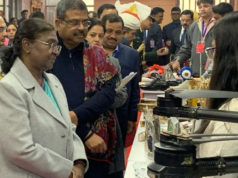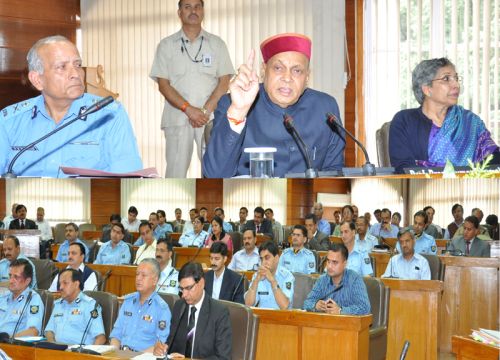The government has taken a proactive step towards ensuring the optimal use of pine needles as a substitute for biomass, aiming to protect precious forest wealth while addressing the environmental hazards caused by their accumulation. Pine trees shed vast quantities of needles that often cover the forest lands, creating mounds that become highly combustible when dry, posing a threat to the local flora and fauna.
Recognizing the significance of pine needles as forest biomass materials and the detrimental effects of forest fires, the state government has embarked on the task of developing a mechanism to harness their potential. Extensive exploration of the constituent biopolymers in pine needles has revealed various applications for this abundant resource.
In a remarkable effort to combat pollution, the Centre for Innovative Technology for the Himalayan region at IIT Mandi has devised an innovative solution that utilizes pine needles as an alternative biomass source. The center has introduced a unique machine capable of producing briquettes and pellets from pine needles, effectively addressing the adverse ecological, diversity, and economic impacts caused by these needles in the Himalayan region.
Emphasizing the importance of sustainability, the state government has thrown its support behind the project. The briquetting machine will be utilized not only for pine needles but also for other types of biomass. Collaborating closely with the state government, IIT Mandi plans to establish similar plants throughout the entirety of Himachal.
Furthermore, pine needle-based briquettes boast impressive environmental benefits, as they contain significantly lower levels of sulphur and other harmful elements. The Himachal region, blessed with abundant pine cones, can witness a reduction in greenhouse gas emissions by utilizing this highly combustible resource instead of relying on fossil fuels.
Chief Minister Sukhvinder Singh Sukhu expressed his thoughts on the initiative, stating, “Many sectors, such as thermal power, cement, and steel, are actively exploring substitutes for fossil fuels to mitigate emissions. The potential scope can be expanded to include fuel briquettes made from pine needles, which offer a much higher calorific value. This not only contributes to environmental preservation but also strengthens the rural economy.”
In addition to the pine needle project, the government plans to initiate a pilot project for bio-energy production using pine needles and bamboo. Given the state’s vast conifer forests and high potential for bamboo cultivation, this endeavour holds promising prospects for sustainable energy generation and economic growth.
By capitalizing on the abundance of pine needles and harnessing their potential as biomass substitutes, the government aims to strike a harmonious balance between environmental conservation and socioeconomic progress. The innovative solutions developed through collaboration between IIT Mandi, the state government, and other stakeholders pave the way for a greener and more sustainable future in Himachal.













